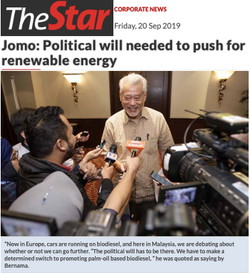- May 20, 2025
- 4 min read
KUALA LUMPUR, Malaysia, May 20 2025 (IPS) - With President Trump’s efforts to end the Ukraine war, Europeans are now mainly responsible for prolonging it. Despite lame protestations of peace, Europe seems committed to fighting ‘to the last Ukrainian’.
Unsustainable peace
As Europe celebrated the end of the Nazi-initiated Second World War earlier in May, it does not seem to know how to sustain peace after war.
Both ‘world wars’ of the 20th century started in Europe as inter-imperialist wars, killing millions. In 1884-5, the Berlin Conference divided Africa among the dominant European powers.
After attending the Versailles palace negotiations following WW1, the young John Maynard Keynes’ The Economic Consequences of the Peace warned the agreement’s terms undermined a sustainable peace, almost anticipating Nazism’s later rise.
Towards the end of World War II (WW2), FDR’s Treasury Secretary, Henry Morgenthau, insisted Germany should not be allowed to re-industrialise after the War.
After starting and losing two world wars, German military aggression seemed unavoidable. For Morgenthau, reindustrialisation would inevitably lead Germany to war again.
For FDR, only postwar recovery for all would ‘win the peace’, not subjugating and destroying the loser.
His WW2 generals, famously Eisenhower, Marshall and MacArthur, imposed ‘pacifist’ constitutions and reforms for postwar growth on Germany and Japan.
Imperial oversight?
Despite his brilliant contemporaneous insights into the unsustainability of the peace secured at Versailles, Keynes ignored its outcome for China.
At Versailles, the Shandong peninsula, previously ruled by the Germans, was not returned to China, but given to Japan instead!
The resulting May 4th (1919) movement culminated in the Chinese revolution. Keynes was as blind to this as to WW2’s three million lives lost to the Bengal famine.
Although invisible in movies, tens of thousands from China were involved in WW1, mainly digging trenches for European troops in a war primarily remembered for trench warfare.
German possessions in southern Africa were not returned to Africans, but instead held ‘in trust’ by European powers, including the white South African regime.
While there have not been more ‘world wars’ since the end of the Cold War, there have been many more wars in the supposedly unipolar/multipolar world.
NATO v the UN
At the UN General Assembly, 141 countries condemned the Russian invasion of Ukraine in 2022. But many also oppose North Atlantic Treaty Organization (NATO) expansion via Ukraine to threaten Russia.
This is reminiscent of broad international support for President John F Kennedy in 1962 when he insisted Soviet missiles be withdrawn from Cuba, just off Florida.
NATO was established for the Cold War and should have been dissolved at its end. Its raison d’être, the rival Warsaw Pact, was gone. Worse, NATO expansion continues while it conducts unlawful wars not sanctioned by the UN Security Council.
German Chancellor Angela Merkel and French President François Hollande have both confessed that the 2014 Minsk deal with the Russians was intended to buy time to arm Ukraine for war later, not to secure peace.
Similarly, British Prime Minister Boris Johnson successfully blocked negotiations between Ukraine and Russia in the last half-year of his tenure. A peace deal would have ended hostilities and saved hundreds of thousands of lives, mainly Ukrainian.
Europe has continued to insist on war despite worsening odds. And when NATO allies blew up the gas pipeline from Russia to Germany, no protests followed.
NATO should have been dissolved at the end of the Cold War, once its raison d’être, the rival Warsaw Pact, was gone.
Despite Europe’s pretensions of leading worldwide efforts against global warming, it quickly reversed earlier commitments, even abandoning its 2021 Glasgow commitment to reject coal less than half a year later.
Unsurprisingly, the Global South remains sceptical of the EU’s carbon border adjustment mechanism (CBAM), perhaps only the latest form of European trade protectionism.
The EU has already worsened world economic conditions by raising interest rates, imposing illegal sanctions, insisting on fiscal austerity and cutting social spending in favour of military expenditure.
European leaders now proudly announce military Keynesian policies, expecting growth from more war spending. Thus, the turn to war has meant less growth and more inequality.
A non-aligned South?
FDR envisaged a peaceful new multilateral order offering progress for all. But such hopes have been squelched by political pressures for informal empire abetted by a resurgent military-industrial complex.
A different world is needed based on much stronger commitments to peace, freedom and non-alignment. It may be time for the West, the Global North and others to learn from the South-East.
In 1955, Indonesia hosted the Afro-Asian summit in Bandung, which boldly spoke for the post-colonial South and made the case for non-alignment as the Cold War began.
Over half a century ago, in 1973, the Association for South East Asian Nations (ASEAN), set up in 1967, committed to creating a zone of peace, freedom and neutrality (ZOPFAN).
Creating the enabling conditions for ongoing cooperation, development, and progress can help sustain the bases for a peaceful and progressive new world order.




















